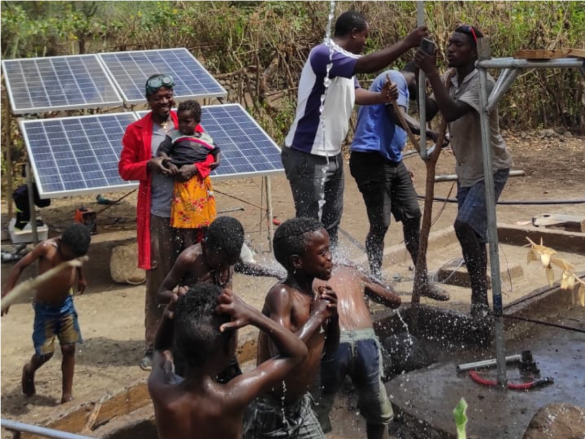The Ugandan government has embarked on an ambitious initiative to harness solar energy for enhancing the quality of life in its rural communities. Last week marked the commencement of a remarkable $2.5 million solar-powered water supply project in Rubanda West, aiming to quench the thirst of approximately 44,000 residents across 36 villages with clean, accessible water.
Rubanda West, a region previously plagued by severe water scarcity, is witnessing a transformative project designed to alleviate the hardships faced by its inhabitants. This initiative is not just about providing water; it’s about bringing hope and improving the overall well-being of the community. The distressing reality, as highlighted by Healing Waters International, is that a significant portion of Uganda’s population, about 7% or roughly three million people, relies on unprotected and unclean ground water sources. These individuals are compelled to gather water from ponds and streams, putting their health at risk due to the consumption of contaminated water.
The situation is dire, with more than half of the country’s population lacking basic access to safe drinking water. This means many Ugandans are dependent on surface water, untreated sources, or have to undertake long journeys just to access clean water. Moreover, the sanitation facilities leave much to be desired, with over half of the toilets in Uganda failing to meet hygienic standards, thereby exacerbating the risk of waterborne diseases due to the improper disposal of human waste.
The scarcity of functional hand-washing facilities further complicates the health crisis, with only one in five people having access to such amenities. Despite the availability of hand-washing devices for one-third of the population, the lack of reliable clean water and soap remains a significant barrier to maintaining basic hygiene practices. In response to these challenges, the Ugandan government is proactively seeking partnerships with external organizations. The goal is to revolutionize sanitation and water supply, aiming to achieve substantial progress by 2030. This collaboration underscores a commitment to not only address the immediate needs but also to lay the groundwork for long-term sustainability.
Adding another layer to this initiative, the government also unveiled a 400kW solar power plant in February, located on Bussi Island in the Wakiso district. This project is designed to empower the agricultural sector and stimulate local businesses by providing clean and efficient electricity to around 200 homes and businesses. It symbolizes a move towards leveraging renewable energy to foster economic development and environmental preservation.



